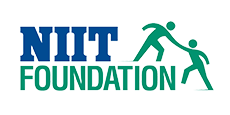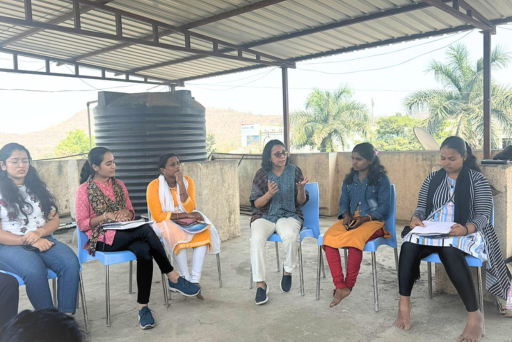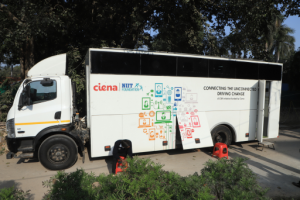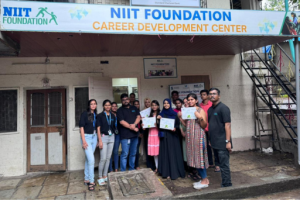Last winter, a handful of NIIT Foundation students in a village outside Jaipur discovered that their community clinic closed at dusk because it lacked reliable light. Six weeks later they had rigged a low-cost solar-powered system, an experiment modest in scale, but powerful enough to inspire what is now the ChangeMaker Academy (CMA). From the start, CMA has treated entrepreneurship not as a finish line but as a launchpad, a place where budding entrepreneurs get together, learn to solve urgent problems, lead with empathy and build ventures the future actually needs.
The CMA journey for a student is not a linear pathway, but is instead an evolving journey. This journey is anchored by three powerful components: a 6 week community action project, personalized mentorship; and a high stake shark tank style pitch experience to test yourself with real investors/ donors.
The 6 week community action project is where everything begins. Participants step out of the classroom and into their communities to take on real-world challenges. These challenges range from improving access to education for children, addressing food security, or tackling environmental concerns. The program facilitates budding entrepreneurs to build perspective on various issues they want to solve, and co-create solutions. This type of learning cannot be replicated in a lecture hall.
Once ideas begin to take shape, one-on-one mentoring becomes the secret engine that keeps momentum high. Weekly check-ins, candid feedback loops and mock board meetings help founders stress-test everything from revenue logic to team dynamics.
After roughly three months of iteration, students enter a high-stakes pitch arena that borrows its adrenaline from reality TV yet answers to real investors and donors. Founders race a three-minute clock, field unfiltered questions, and, whether or not they walk away funded, leave with sharper business models and often their first paying customers. The day ends in equal parts celebration and frank reflection. This exercise that cements resilience as much as it rewards polish.
CMA’s first three cohorts have trained more than 300 students; forty-one percent launched revenue-generating ventures within twelve months. Graduates say the greatest takeaway isn’t a business plan but the conviction that change starts wherever the lights are still off, and that they now possess the tools to switch them on.
In the end, what makes CMA so powerful is that it doesn’t treat entrepreneurship as a destination. It treats it as a launchpad.
















